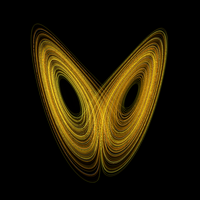Sect. 32. Since the oldest days of philosophy inquirers into
pure reason have conceived, besides the things of sense, or
appearances (phenomena), which make up the sensible world,
certain creations of the understanding (Verstandeswesen), called
noumena, which should constitute an intelligible world. And as
appearance and illusion were by those men identified (a thing
which we may well excuse in an undeveloped epoch), actuality was
only conceded to the creations of thought.
And we indeed, rightly considering objects of sense as mere
appearances, confess thereby that they are based upon a thing in
itself, though we know not this thing in its internal
constitution, but only know its appearances, viz., the way in
which our senses are affected by this unknown something. The
understanding therefore, by assuming appearances, grants the
existence of things in themselves also, and so far we may say,
that the representation of such things as form the basis of
phenomena, consequently of mere creations of the understanding,
is not only admissible, but unavoidable.
Our critical deduction by no means excludes things of that
sort (noumena), but rather limits the principles of the Aesthetic
(the science of the sensibility) to this, that they shall not
extend to all things, as everything would then be turned into
mere appearance, but that they shall only hold good of objects of
possible experience. Hereby then objects of the understanding are
granted, but with the inculcation of this rule which admits of no
exception: "that we neither know nor can know anything at all
definite of these pure objects of the understanding, because our
pure concepts of the understanding as well as our pure intuitions
extend to nothing but objects of possible experience, consequently
to mere things of sense, and as soon as we leave this sphere these
concepts retain no meaning whatever."
Kant, Immanuel, Prolegomena to Any Future Metaphysics, 1783.
nou*me*non, |noōmə,nån|
noun (pl. na |nə|)
a thing as it is in itself, as distinct from a thing as it is knowable by the senses through phenomenal attributes.
Oxford American Dictionariese
"...that we neither know nor can know anything at all... and as soon as we leave this sphere these concepts retain no meaning whatever...?"
...can I know "nothing," if I am not by its sphere nor cannot sense it?
Subscribe to:
Post Comments (Atom)

No comments:
Post a Comment